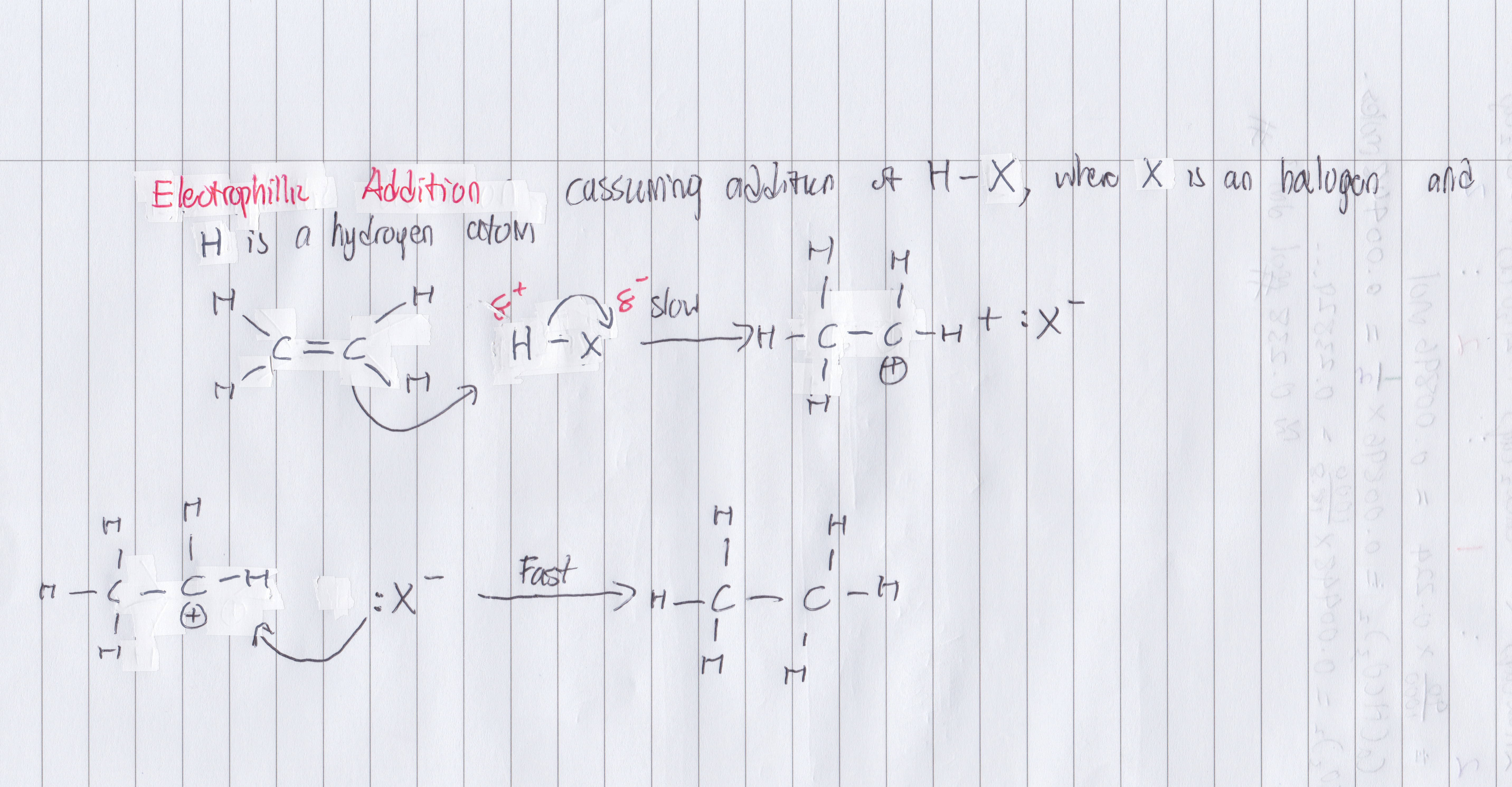Step 1: Familiarise yourself with reaction mechanisms. There are only a few generic kinds of organic reactions tested (at least for IB), and hence I find it easier to memorise the general mechanism behind the different reactions. This would give you a deeper understanding of the steps and the factors which lead up to the final product. For IB students, the HL chem syllabus only requires you to know the mechanism of 3 types of reactions (electrophilic substitution, electrophilic addition and nucleophilic substitution). So, go learn them! If you do not understand what I am saying, please refer to the picture below :)

Step 2: Draw a basic mindmap for reaction pathways you need to know!
I don’t know for other syllabus’s, but for IB it requires you to be able to come up with a reaction pathway given a start and end reagent. If you do not understand what I am talking about, please refer to the next picture, put down general reagents and conditions for all the reactions in a pathway which like how I did it. I would suggest removing any extraneous reactions which do not contribute to the pathway, or any alternative pathways which could arrive at the same product, and also only include reactions within your syllabus. This is because the purpose of this mindmap is to familiarise yourself with the general reactions and including the extraneous reactions may give it added complexity. I also suggest memorising the map by constantly redrawing it, and after a while it should be internalised. I redrew the map in the picture every morning in the week upcoming to SCHO and I felt that it got me more familiarised and comfortable with organic chem in general. Also do remember that my picture only covers aliphatic (straight chain) compounds, do rememberer there are also aromatic compounds (those with benzene rings) !

Step 3: Expand on your reaction knowledge!
Because the reaction pathway you draw may not include the extraneous reactions as mentioned above, I would suggest only memorising such reactions after you are familiar with the basic reaction pathway reagents and conditions. I feel the mindmap would give yourself enough background knowledge to further expand on your organic chem knowledge with ease! If you want a suggestion as to what are the extraneous reactions, do remember to look at your textbook or your school’s notes, which should give you a good gauge as to what is tested!
Hi guys, so here is how I study organic chemistry, it’s a lot of memorisation work at the start but trust me once you get the basics right it only gets more interesting
Disclaimer: everything I say here is my opinion of how to study chemistry and what currently works for me, and it may not work for everyone so know yourself and stick to what works for you!
